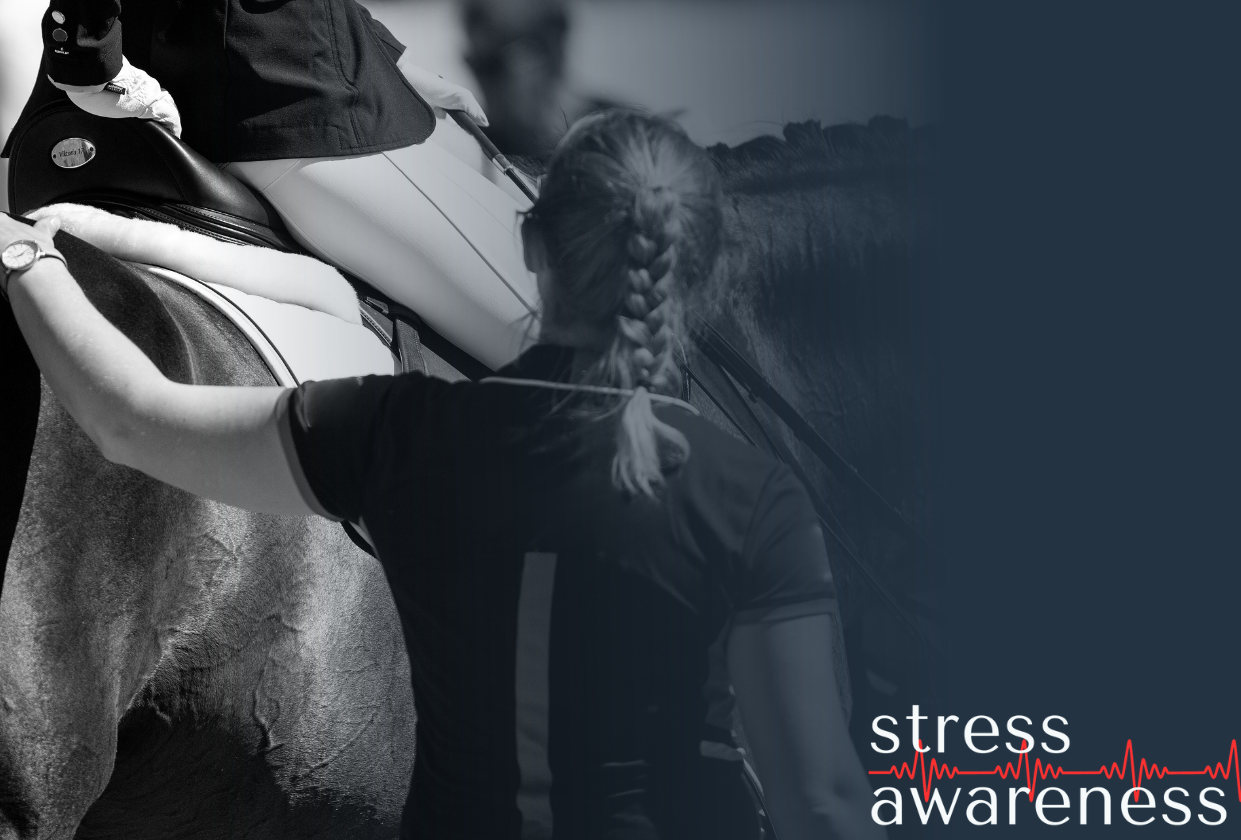We all know that working in international horse sport can be intense, that during the competition season the yard schedule can become almost manic, and that rest isn’t something that’s easy to come by. But for many of the very best grooms, there is another factor at play here: Their own perfectionism.
So how can you learn to cope when your own personality is causing you excessive amounts of stress?
First, that is really difficult. What are the qualities of a great groom? Attention to detail, dedication, the ability to work hard, a good memory, a close bond with the horses.
Another aspect is that many riders may well be delighted to have someone on the team who never takes a day off or who triple-checks everything they or anyone else does. We’ve all seen those “joke-y” advertisements looking for a groom who “must have OCD.” But these are the very characteristics that can push you towards burnout.
When it Turns into Micro-Managing
People struggling with their own perfectionism can also be difficult to work with, as they can fall into micro-managing the team. We’ve all been there: At a show with lots of horses and a working student to help. They would be capable of more than mucking out but… it just seems simpler to do most of the work yourself rather than explaining how you want it done.
Learning to understand yourself, to take a step back and realize that you are not the only person capable of putting on the massage rug (or whatever the task is), can take a lot. Once a person has become fixated on doing things a certain way it can be really hard to look at the bigger picture and realize that there are some tasks that can be delegated to other people.
Delegating can free up time to focus on what should be priority tasks – for instance, if there are horses needing to be clipped, it may make sense for the senior person to leave the rest of team to muck out and turn out whilst they get on with clipping.
This is not about letting your standards slip. However, it is important to recognize what really matters, especially if you are short-staffed or working under pressure.
Fear of Taking Off
When your perfectionism starts to turn into a dislike or even a fear of taking a day off, it can really impact your mental and eventually your physical health. Of course, you do not want to take your day off when you know you have to pack for a competition – but do make sure to schedule it where it fits.
For those grooms who say, “Well who knows what I’ll come back to if I have a day off,” that’s a big problem. Either there is no discipline in your team, or you get no support from your boss, or (this one might take some swallowing) you are being unfair to the people you work with.
If the problem is one of the first two, then it is time to speak to your employer about having the right team structure in place on the yard – nobody can work 7 days a week, 52 weeks of the year. And if the issues are not ones you feel can be corrected you have to ask yourself if this is the right job for you.
For some people, perfectionism in their work can be a way to escape from issues outside of work. Whatever happens in your personal life, at least you know you’re doing a good job. The reality is this will only ever be a temporary fix, and at some point you will probably have to look at the things you are trying to ignore.
Tips on How to Cope
Ultimately for anyone struggling to let go of perfectionist tendencies, wherever they come from, there are a few strategies to think about.
- Learn to take a step back and look at the bigger picture. If you have a busy day and you have to ask your working student to braid that horse – isn’t it better that the horse is at the ring, correctly presented but with one less braid than you might like, compared to you ending up hugely over-stressed just to fit in one more thing?
- Think about why you feel like this? Be logical about these fears that go round and round in your brain.
- Talk to someone: A friend, your boss, even a professional if you feel you need to. Sometimes you just need to hear something out loud to start to get more control over it.
- Be kind to yourself. Recognize what you can realistically achieve and be responsible for in a day, and then delegate beyond that.
Remember, what you see on everyone else’s social media is a highlight reel.
How to Address Perfectionism in the Workplace
Finally, if you work with a perfectionist you might feel a lot of negativity towards them. Ultimately though, someone else’s perfectionism is not about you. You may feel the consequences when they don’t let you grow and develop, but this is unlikely to be personal. If you feel you can have a constructive conversation with them, or your boss, it can be helpful to discuss team dynamics, and hopefully create a less stressful work environment.
Perfectionism in the workplace comes from a place of wanting to avoid mistakes and stress; but in its own way, it can create a lot more miscommunication and upset for both the person themselves and those working with them.
If this is something that sounds familiar to you, take the time to think about ways you could take a step (or even a half-step) back and start to regain some more control over your own life.
Feature photo courtesy of FEI.


